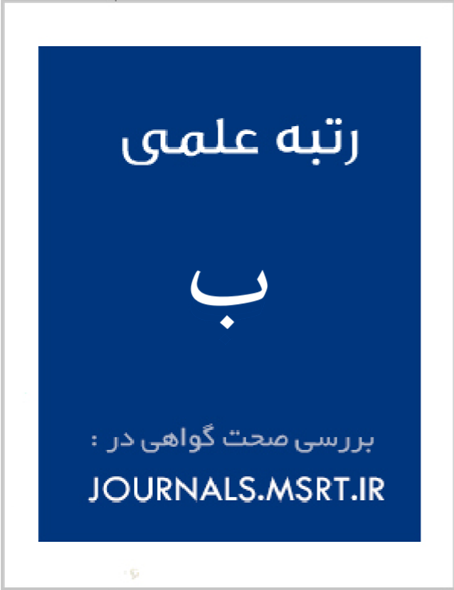شناسایی شاخصهای اعتماد اخلاقی در روابط اجتماعی اسلامی
کلمات کلیدی:
اعتماد اخلاقی, روابط اجتماعی اسلامی, تحلیل مضمون, اخلاق اسلامی, سرمایه اجتماعیچکیده
هدف این پژوهش، شناسایی شاخصهای اعتماد اخلاقی در روابط اجتماعی اسلامی از منظر تجربه زیسته شهروندان تهرانی است. این پژوهش با رویکرد کیفی و روش تحلیل مضمون انجام شده است. دادهها از طریق مصاحبههای نیمهساختاریافته با ۲۰ نفر از شهروندان تهرانی که در روابط اجتماعی خود از الگوهای دینی بهره میگیرند، گردآوری شد. انتخاب مشارکتکنندگان بهصورت هدفمند و تا رسیدن به اشباع نظری ادامه یافت. دادهها پس از پیادهسازی، با استفاده از نرمافزار NVivo نسخه ۱۲ تحلیل و کدگذاری شدند. فرایند تحلیل در سه مرحله کدگذاری باز، محوری و انتخابی انجام شد. یافتههای پژوهش سه مقوله اصلی را نشان داد: «بنیانهای شناختی اعتماد» (از جمله ادراک صداقت، نیت خیرخواهانه، پایبندی دینی)، «عوامل رفتاری تقویتکننده اعتماد» (نظیر وفای به عهد، امانتداری، انصاف، پاسخگویی)، و «زمینههای اجتماعی و فرهنگی» (مانند تربیت دینی خانوادگی، فضای اخلاقی جامعه، تجربههای پیشین اعتماد). مشارکتکنندگان اعتماد اخلاقی را پدیدهای چندوجهی، درهمتنیده با اخلاق اسلامی، تجربههای فردی و زمینههای اجتماعی توصیف کردند. نتایج پژوهش نشان میدهد که اعتماد اخلاقی در روابط اجتماعی اسلامی حاصل تعامل ابعاد شناختی، رفتاری و فرهنگی است و ریشه در ارزشهای دینی، رفتارهای اخلاقی و نهادهای اجتماعی دارد. این یافتهها میتوانند بهعنوان مبنایی نظری و کاربردی در برنامهریزیهای فرهنگی، تربیتی و دینی مورد استفاده قرار گیرند.



